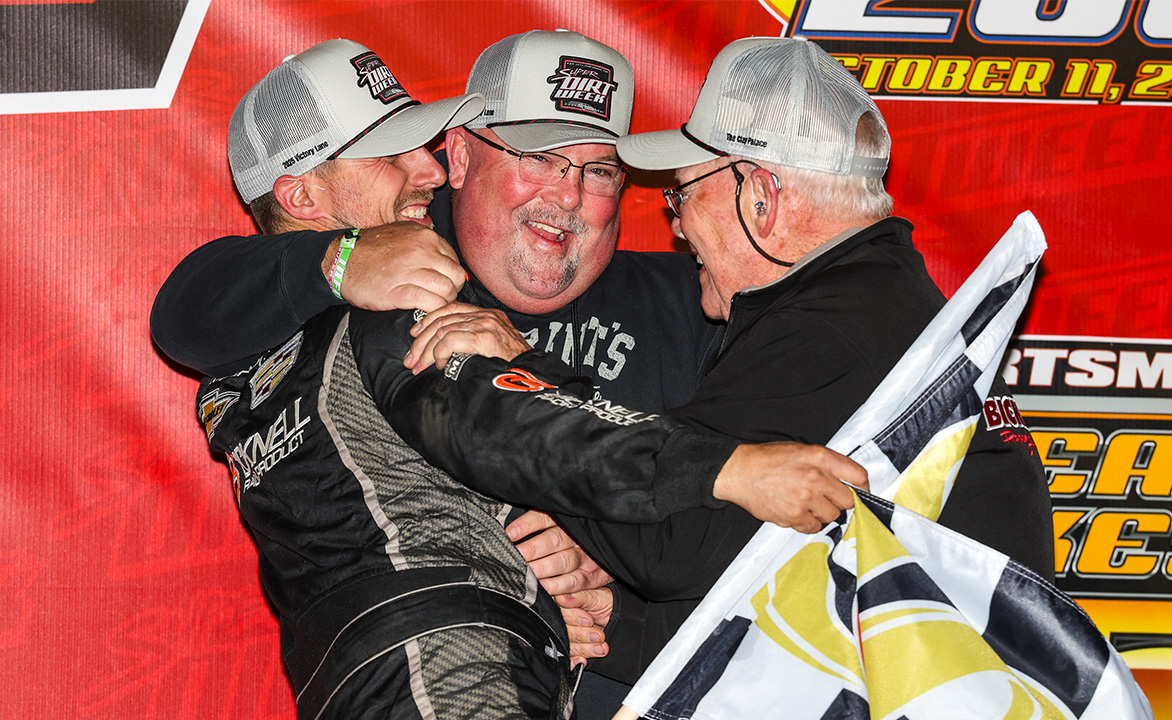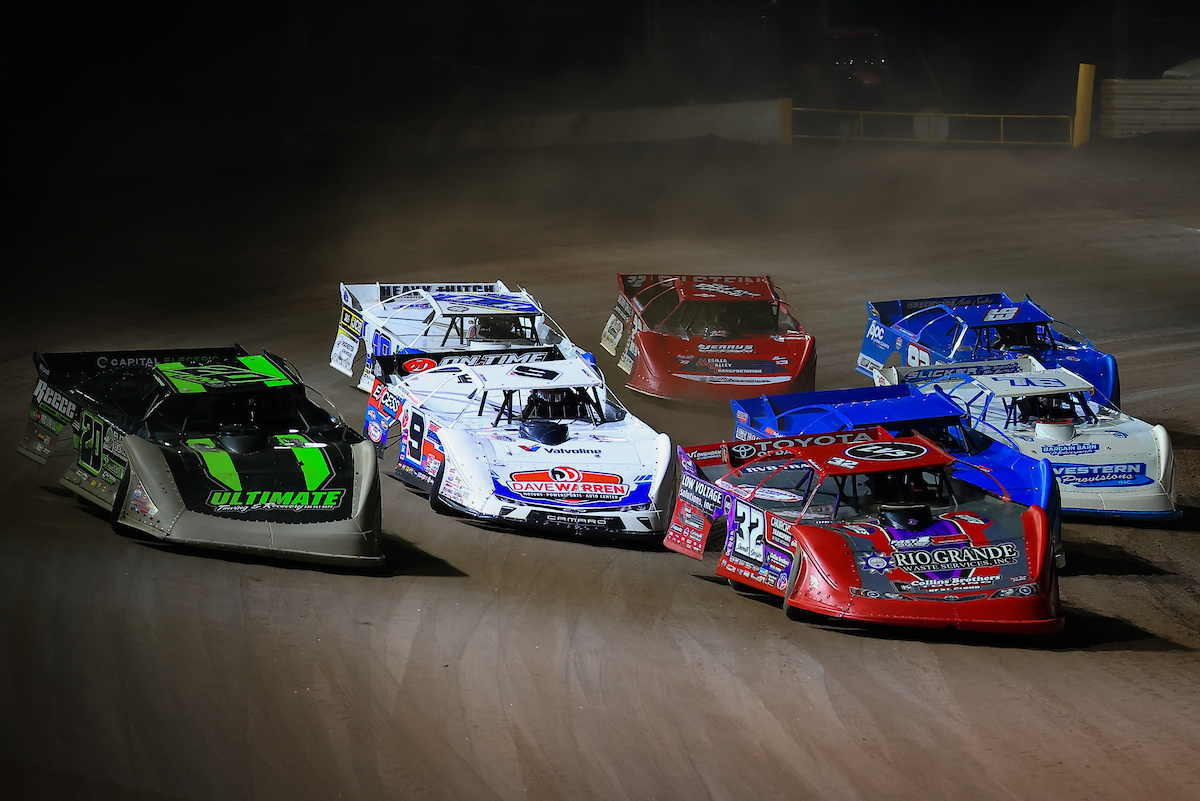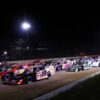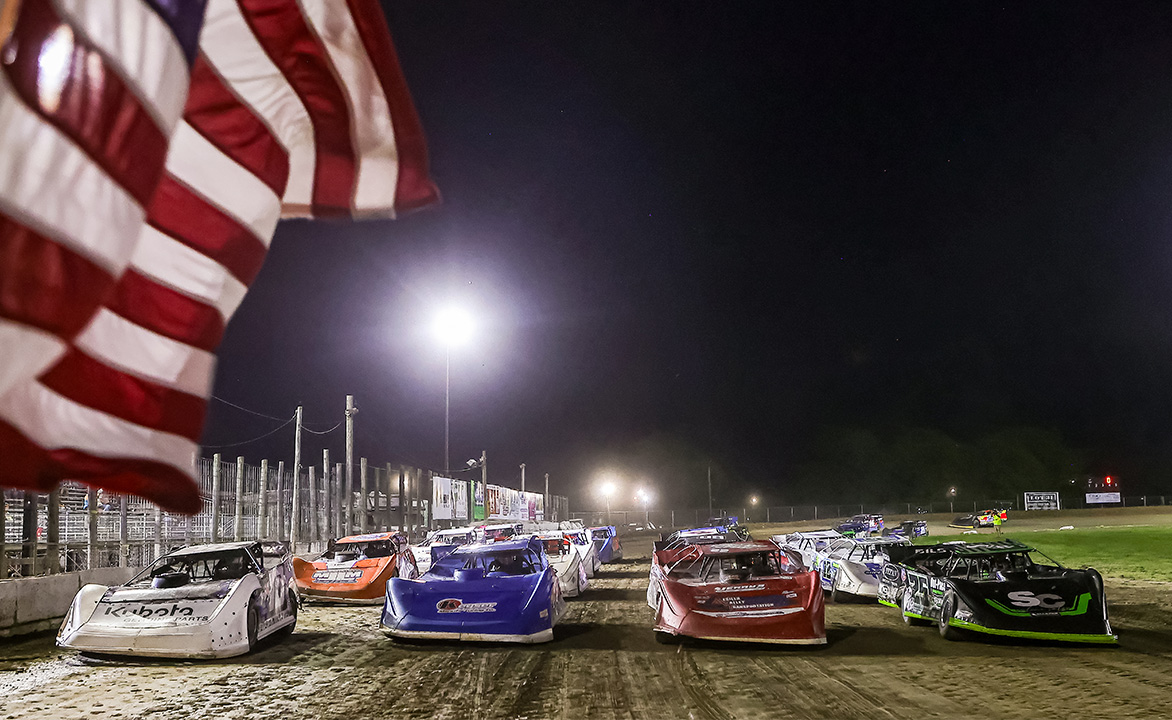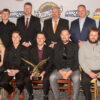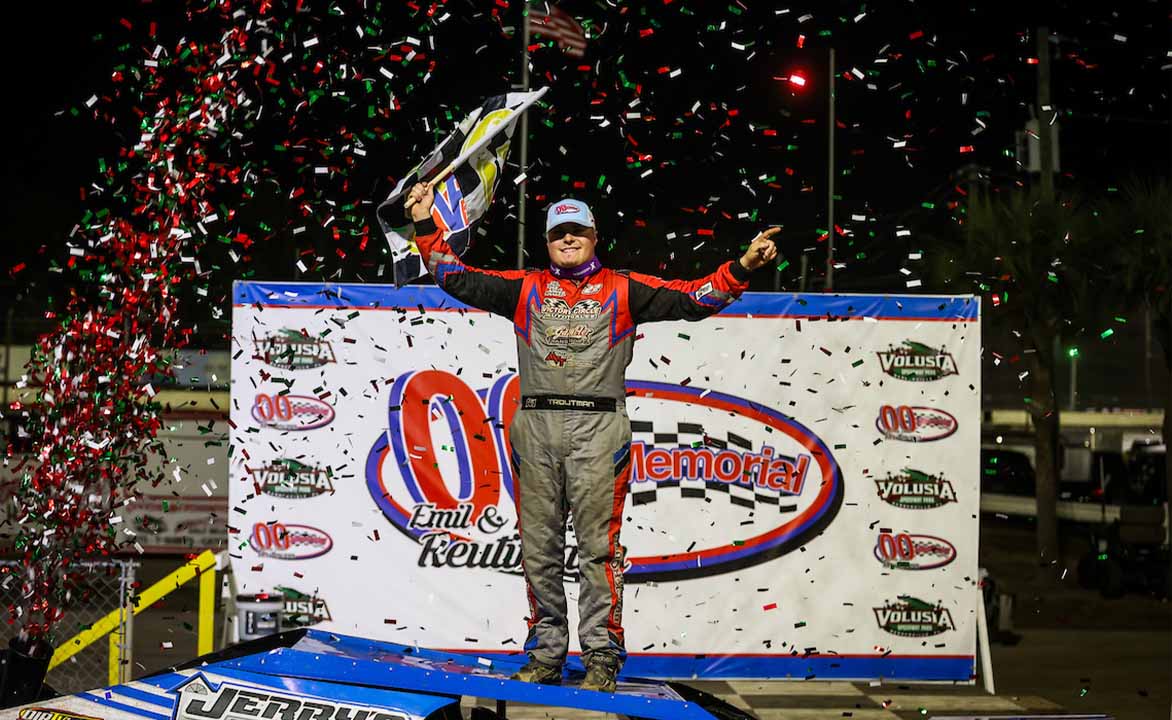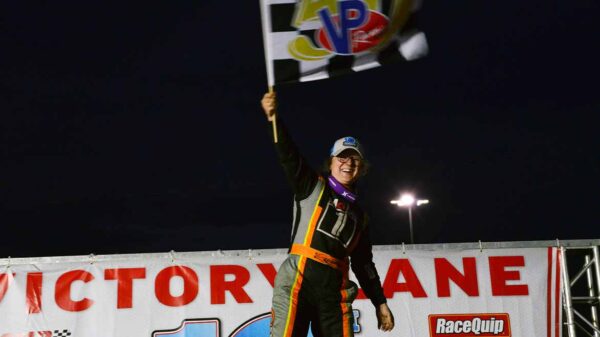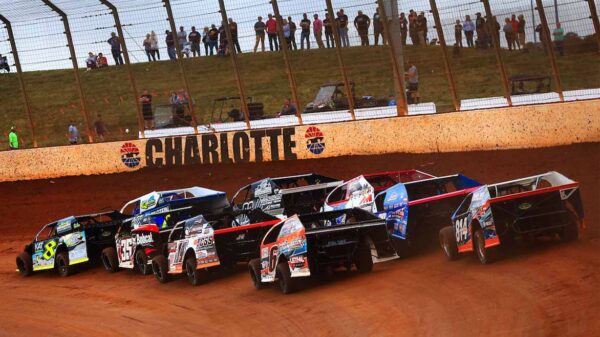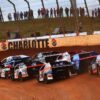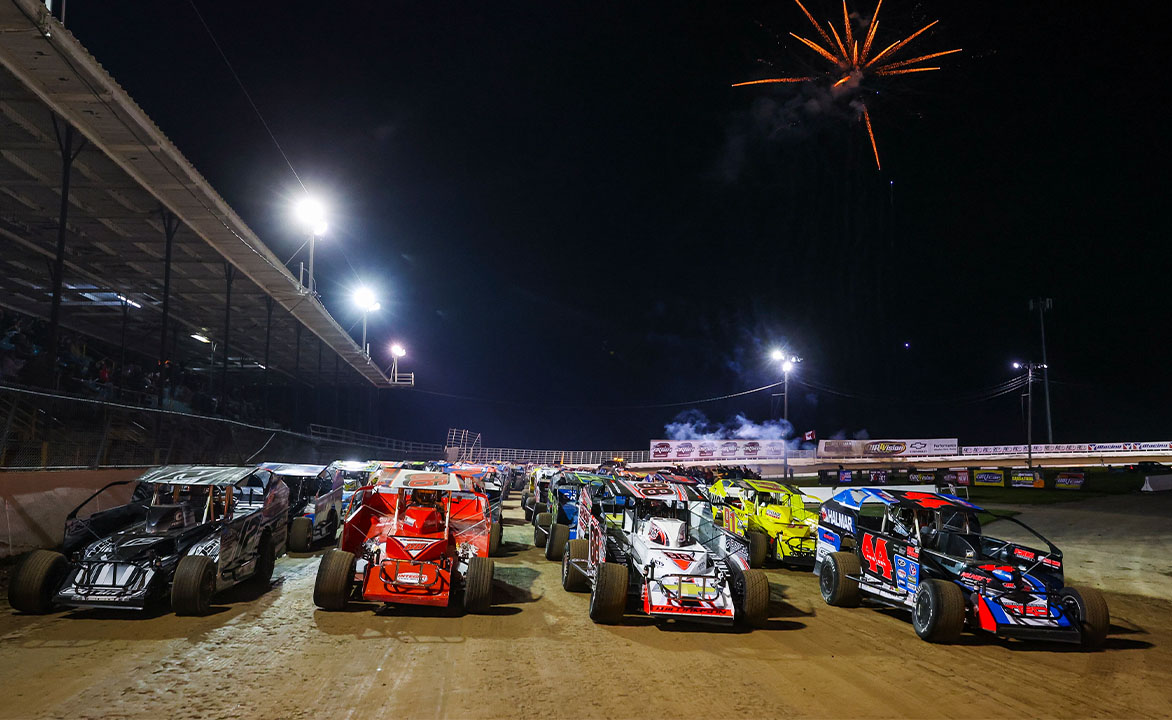With safety always at the forefront of every race, Super DIRTcar Series and DIRTcar Northeast officials are aiming to not only increase safety efforts for their series, but also the entire Northeast.
They took the first step in doing so on Saturday, April 27, with more than 30 officials and track workers taking part in a half-day safety course at Weedsport Speedway.
“We have increased safety immensely on the Super DIRTcar Series with a specialized response vehicle equipped with many tools to help in any situation,” said Dean Reynolds, Super DIRTcar Series and DIRTcar Northeast Series director. “For our competitors over the years, we were the first to mandate full containment seats, head and neck restraints, fire suppression systems, and other aspects. While it can be costly, injuries have decreased significantly as a result. That’s the most important result.”
Earlier this year, Series officials took part in an SFI-certified training course at Volusia Speedway Park, something they hope to bring to the Northeast in the future.
But until then, Series officials passed along their safety knowledge during the specialized six-station course where firefighters and track officials had the chance to learn the latest safety techniques to utilize at their tracks.
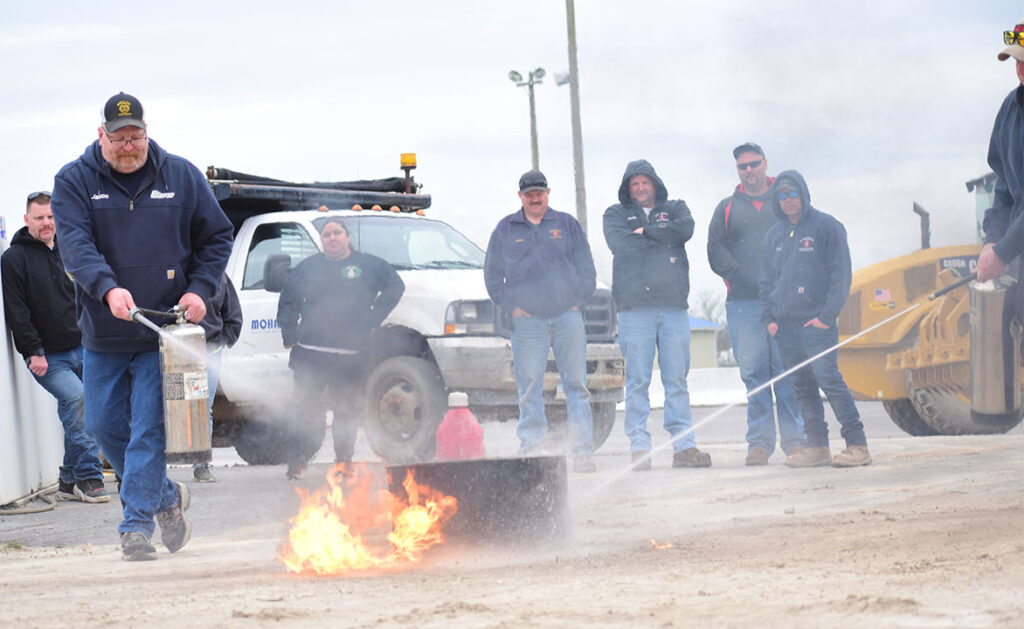
“We had a driver approach station, that was also part of steering wheel removal and shutoffs,” said Andy Burke, DIRTcar Northeast Lead Safety Official. “We also had a helmet and HANS Removal, driver removal as far as stabilizing the driver and removing them from the car, a fire station to practice putting out gasoline and methanol fires. We also had a rollover station where people hooked up a car to find the smoothest way to roll it back over on its wheels, and a cutting station using an AMKUS battery operated cutter.”
Super DIRTcar Series official Mike Kelly has been working on the driver approach station for years, so officials can better understand what they encounter. He took his knowledge from working at DuPont for 30-plus years, where he said they preached safety.
“Prior to COVID, I said I was going to find a frame and cage and cut it up,” Kelly said. “So that’s what I did, taking it to Brockville (Ontario Speedway) so they knew where everything was like the shutoff valves, and how tight it is, and let them play with one of those (crash-test) dummies to get out of there.
“It paid off getting the safety team trained up on how to cut somebody out of the car without cutting the cage.”
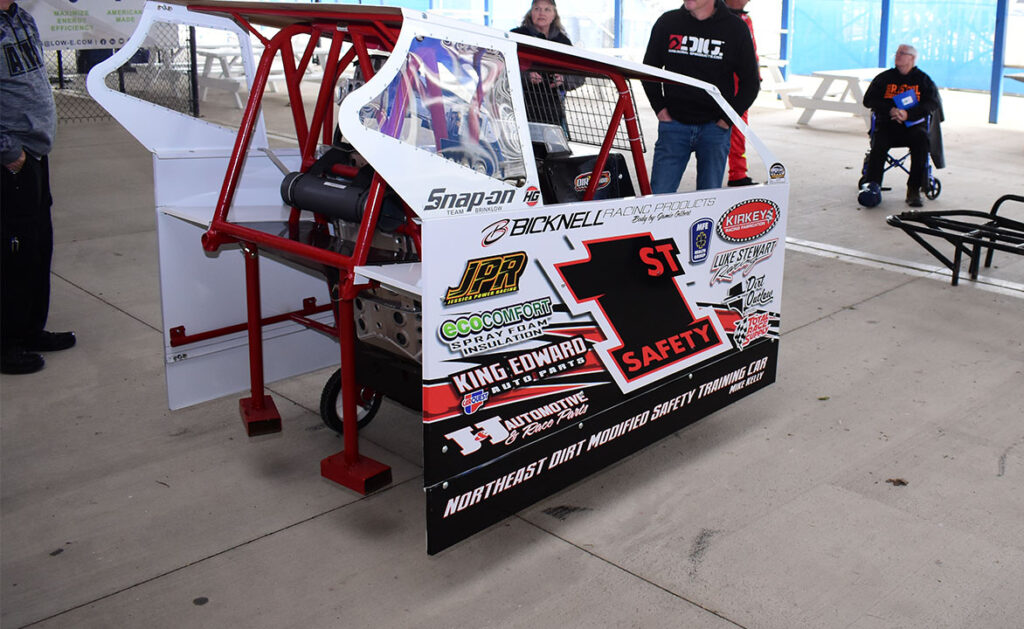
Before Saturday’s seminar, Burke and Kelly were among the officials who took the SFI training course in February. Even with their previous knowledge, they both learned something they could pass along.
“You never run into the same situation twice,” Burke said. “It’s good to find out from other safety personnel different safety scenarios they’ve run into, and actually talk to see what other ideas and plans you can turn around and use at your own tracks.”
“That was my second SFI Training,” Kelly said. “On my portion of it, with the little car and the cutting. I learned more on how to approach the car when someone’s in a crash. They want you to face the driver as you’re approaching the car and start talking to them as you’re walking up there.
“The cutting basically showed them what was recommended, the blades to use, and how well they cut with the Sawzall. Between the knowledge I had prior and what I learned at SFI, I passed everything off to the three groups.”
Those who attended the seminar gained awareness of what they need to look for at the track, including awareness of counterfeit equipment, and counterfeit labels on fire suits, helmets, seats, and shoes.
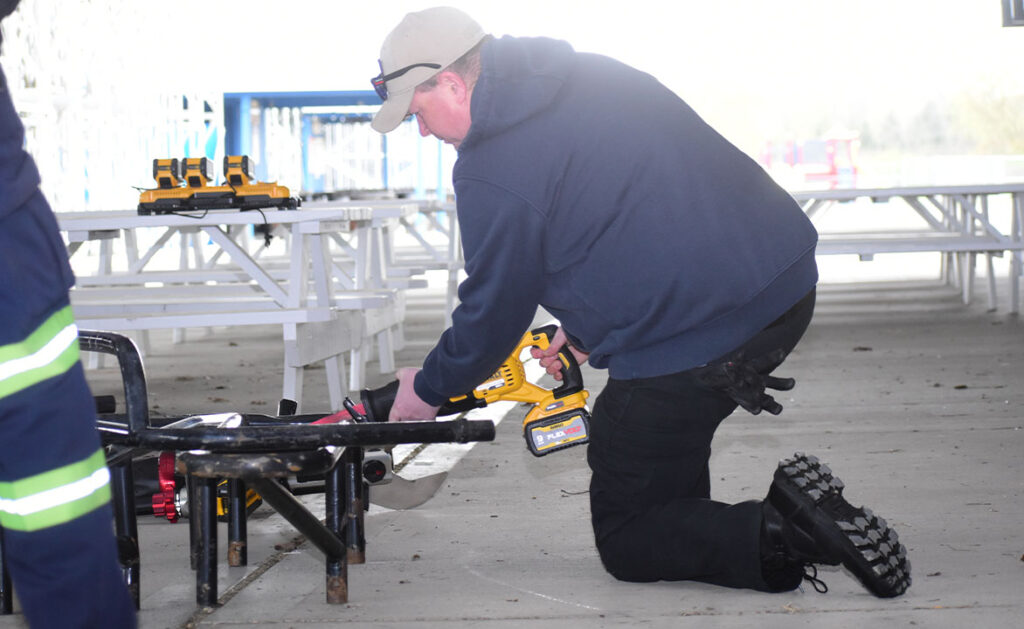
No matter their level of expertise, everyone learned something new.
“From the response that I got on the cutting side, a lot of them were familiar with cutting and had a little bit of knowledge on the car,” Kelly said. “But they all took a keen interest and looked in the car and learned how to pull a steering wheel off, where the shutoff valves were, and stuff like that.”
“We look forward to building on it for next year,” Burke said. “Everyone we spoke to had positive feedback and at least took one thing from the seminar back with them.”
Officials will add that feedback to their growing knowledge, as they continue to find ways to improve safety in 2024 and beyond.



